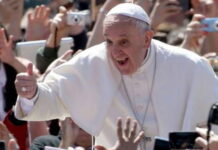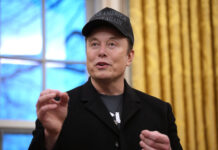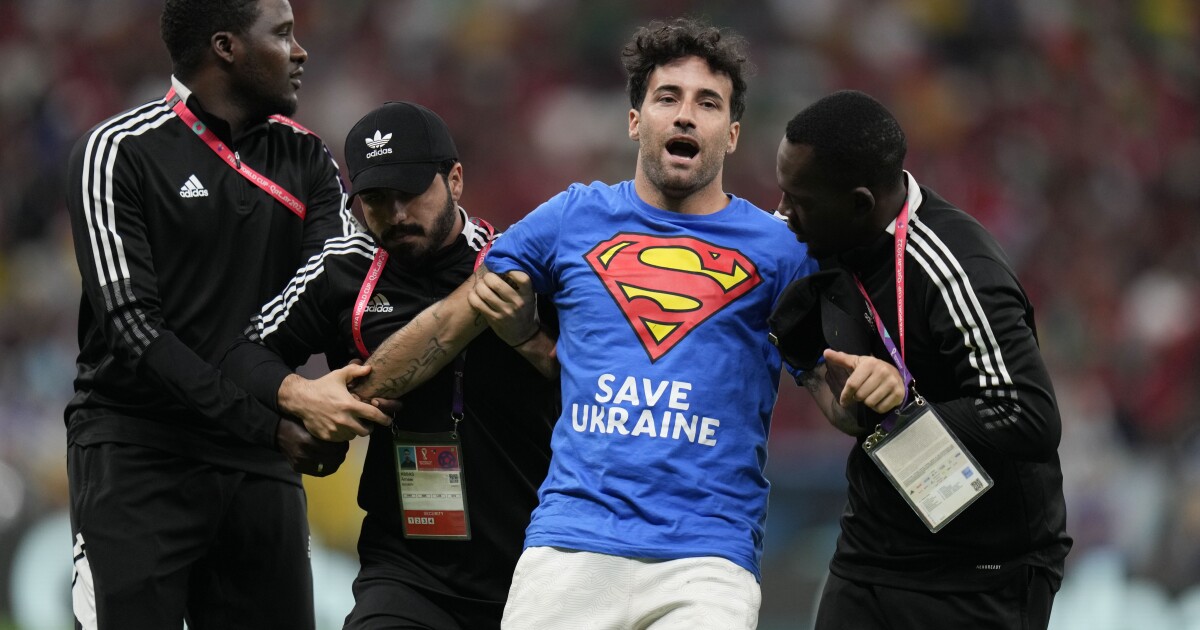
Did you ever dream of seeing Elon Musk, the Tesla-designing, space-chasing crypto booster masquerade as a lovelorn Icelandic talk show producer? Me neither, but there Musk was, at week’s end, on “Saturday Night Live,” rotating through sketches and wigs as the program’s guest host—another surreal event, maybe not as surreal as a mega-billion currency system based on a dog joke, to remind us that our world is a little sideways, and may possibly be, as Musk cracked in his opening monologue, “a video game…and we’re all just computer simulations being played by a teenager in another planet.”
Can a tech zillionaire be funny? It’s never been a prerequisite for the job, but Musk seemed open to try, striding onto the iconic Studio 8H stage in a black double-breasted suit that appeared borrowed from the rack at Armani Mars. He proudly said he was the first person to host “Saturday Night Live” with Asperger’s syndrome—“or at least the first to admit it”—and leaned into jokes about his social awkwardness and his unpredictable outbursts on Twitter. (“We’re actually live right now, which means I could say something truly shocking…Like I drive a Prius.”) He brought on his mother, Maye (the whole SNL opener was a big Mother’s Day tribute, with cast moms) who reminded the world of the $500 that a 12-year-old Elon once won for designing a videogame, and expressed excitement at what her son would get her for Mother’s Day.
“I just hope it’s not dogecoin,” Maye Musk said.
“It is,” Elon Musk said.
And there it was: the crossing of the streams, the first mention of the cryptocurrency Musk had helped shoot to the moon and which had soared in advance of his SNL appearance. There really were two concurrent events to monitor Saturday night—Musk on TV, making jokes, and also the dogecoin roller coaster during the show. And it was a roller coaster: the Robinhood trading app briefly hit pause amid a flurry of activity. Historically, this has not been how money, or SNL, is experienced, but whatever. Welcome to 2021, where the stodgy are no match for the stonky.
Still, the preshow frenzy over Musk’s appearance—was he a worthy host, a poor choice, a ratings grab, some combination of all of the above, and most of all, WHAT WOULD ELON SAY?—didn’t recognize a critical truth: SNL is a rather staid vessel. The casts and the jokes change, but every host is strapped into a standard cockpit: do some jokes, read the cards, change clothes a bunch of times, introduce the musical guest, and then, at the end, say goodbye. Steve Forbes managed to host “Saturday Night Live.” As Musk pointed out in his monologue, so did, uh, O.J. Simpson. SNL has highs, lows, and plenty of middling middle, but the NBC program is an institution in its 46th year, and wired to a lot of tradition. As its creator, Lorne Michaels, famously says: “The show doesn’t go on because it’s ready; it goes on because it’s 11:30.”
Which is to say, Musk adapted to SNL more than SNL adapted to Musk, and things never got too weird. The first few sketches involving him were clunkers—I’m still trying to figure out the Icelandic talk show one—with gags that had little or no relation to Musk or the expanded Musk universe. It wasn’t until later that SNL dared to engage the ludicrous mode—during the “Weekend Update” news segment, when Musk appeared as a finance guru named “Lloyd Ostertag.” Here was Musk in the frothy sweet spot everyone wanted to see: being grilled by a pair of skeptical anchormen about a crypto that was chaotically trading based upon what Musk was saying and doing on SNL at that very moment:
“Now, what is dogecoin?” asked co-anchor Michael Che.
“Well, it actually started as a joke, based on an internet meme,” said Musk, er, Lloyd Ostertag. “But now it’s taken off in a very real way.”
“OK. But what is dogecoin?” Che asked again.
“Well, it was created in 2013, and has a circulating supply of 117 billion coins, of which 113 billion have already been mined,” Musk said.
“Alright, cool,” said Che. “So what is dogecoin?”
The climatic line was Musk, I mean, Lloyd, shrugging and admitting “Yeah, it’s a hustle,” which the internet seemed to think was a moment, or maybe just a joke, but who can really say at this point? This is the world we now inhabit, in which a celebrity plutocrat with 53 million Twitter followers holds a spectacular amount of cultural and economic sway, and if you’re going to spend time, and personal fortune, parsing a line offered after midnight on an iconic comedy program to intuit where it takes a currency, please have fun, and good luck, but do not take any advice from me, ask another Journal Jason, Zweig, who is far better equipped.
Musk would appear in a few more sketches, including one in which he spoofed his Mars colony mission, and another in which he joked about his penchant for futuristic tunnels, and it started to feel as if “Saturday Night Live” had saved its better Elon stuff for early Sunday. All of the Musk mocking was tonally light, and almost all of it was straight from the man himself, and if you were worried heading into the show that Musk’s SNL appearance was canny PR to try to soften his enormous wealth and controversial past comments, it’s likely you still feel the same.
At least you can now say you’ve now seen Elon Musk do a monologue, play an Icelandic talk show producer, a Mario Brothers villain, and introduce Miley Cyrus. You never really knew you needed it, and you’re not sure if you got half of it. Of course, you probably thought the same thing about the coin with the dog.
SHARE YOUR THOUGHTS
What did you think of Elon Musk’s “Saturday Night Live” appearance?
Write to Jason Gay at jason.gay@wsj.com
Copyright ©2020 Dow Jones & Company, Inc. All Rights Reserved. 87990cbe856818d5eddac44c7b1cdeb8








